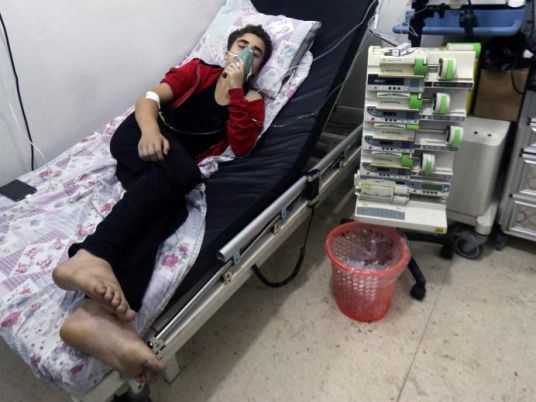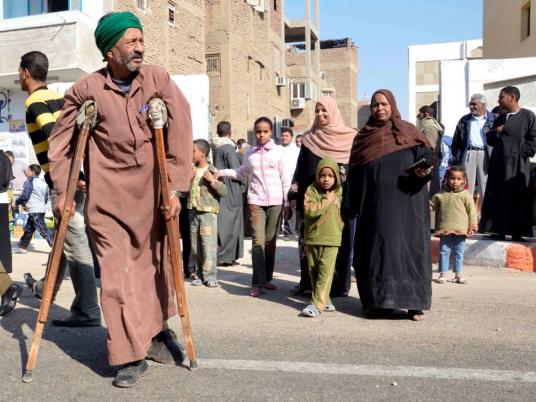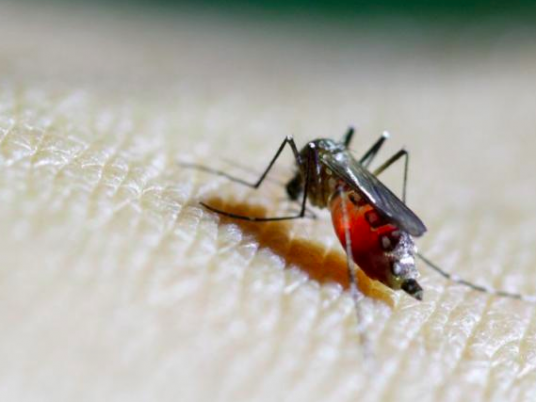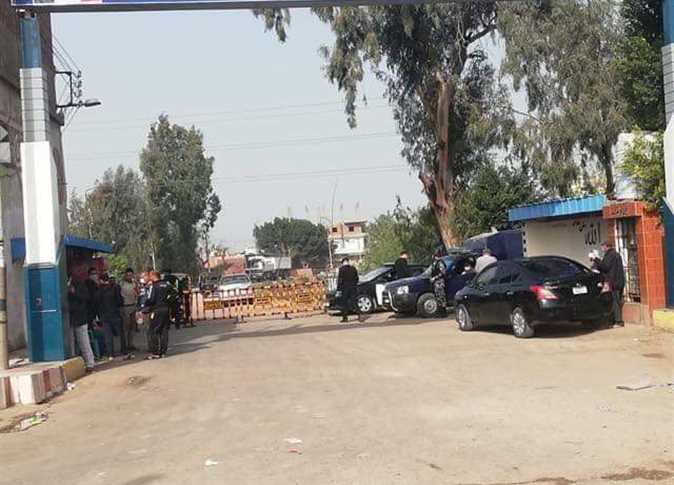Candidates for the ruling National Democratic Party (NDP) in the Qena governorate are expected to sweep tomorrow's parliamentary elections while prospects for violence loom large in most of the constituencies.
Qena has 16 seats in parliament (in addition to two quota seats), 12 of which will be fought over by NDP candidates.
A strong NDP presence, tribal politics and some electronic campaigning mark the electoral scene in the upper Egyptian governorate.
In the city of Qus, supporters of Muslim Brotherhood candidate Hesham al-Qady are preparing themselves for a harsh confrontation with security forces, according to a Brotherhood-affiliated campaigner. Two NDP candidates are competing against al-Qady over thousands of votes.
However, the strong presence of the Muslim Brotherhood in Qus is unfelt in the city of Qena (the governorate's capital), where the contest is dominated by the NDP. Influential NDP candidate Umbarak Abu al-Hagag is running for the professionals seat.
In Naga Hammadi, Abdul Rahim al-Ghoul, a lifelong NDP candidate and current MP, is running against Fathy Kandil, another NDP candidate. Rumors have surfaced that al-Ghoul will lose his seat because of possible Coptic support for Kandil. Al-Ghoul is alleged to have been linked to a thug who gunned down six Copts after Christmas Eve mass in Naga Hammadi earlier this year.
However, Bishop Kirollos of the Naga Hammadi Diocese told Al-Masry Al-Youm that Copts are not going to vote in tomorrow's elections unless they are fully protected at polling stations, adding that Copts see no difference among candidates.
An unprecedented number of ex-police officers are running for elections this year in Qena, including six in Naga Hammadi. Some of them are NDP candidates while others are independents.
Gamal al-Naggar, who holds the farmers’ seat in the city of Qena, has been publicizing the fact that he is a former police officer who helped people while in office.
Tareq Raslan, a retired deputy police commissioner and the NDP candidate for Naga Hammadi said that police officers have a deep knowledge of the complex realities in every constituency.
“Through my experience, I developed relations with every key post in the constituency and this helped me win in the 2005 elections," he said.
"Police officers enjoy high social status since they interact with high executive officials in the state. They're not afraid of facing anybody or of any dangerous situations," said Ammar Abdel Razek, another retired deputy police commissioner who is running as an independent in the city of Armant.
Qena's strong man Abdel Fatah Omar, a retired general who heads the influential National Security Committee in the People's Assembly, is running in the city of Niqada. Local commentators believe he will win.
Most of the seats are expected to have a runoff except for the two women quota seats.
The NDP in Qena has nominated Fatma Ibrahim and Mona al-Shahat in the women quota seats, a choice that has sparked controversy.
"They do not represent women in Qena," argued Hanan Taher who went on a hunger strike last week after being denied the right to run in the elections. "They were nominated by the NDP after a poor selection process."
Less than 40 women submitted electoral applications in Qena, the vast majority of which are running for one of the two quota seats.
“Extras” is how Raslan describes the weak opposition parties’ presence in Qena. Rather than party politics, tribal power is at play, according to him.
Internet forums have become a widespread tool in Upper Egypt during elections, especially for campaigning purposes.
In the remote Abu Tesht constituency, Farag Abu al-Galb, a Wafd candidate, insists that the internet has changed his electoral campaign.
"I found that every candidate in Upper Egypt is doing the same thing to reach voters. However, many youngsters are still missing." he said.
Inspired by an online elections forum recently launched by young villagers, Abu al-Galb launched a website to reach out young voters.




